Turtle Point Press: An Interview with Ruth Greenstein
American Book Review, Summer 2023 | See interview here
American Book Review, Summer 2023 | See interview here
MAY 27, 2020
By Emily Behnke at BTW News | See article here
Turtle Point Press, based in Brooklyn, New York, was founded in 1990 by Jonathon D. Rabinowitz. Celebrating its 30th anniversary this year, the press still upholds its founding mission to publish forgotten literary gems and unique and eminently readable contemporary literary writers.
Ruth Greenstein, publisher of Turtle Point, told Bookselling This Week that she seeks out books that will “delight” readers. “We want to publish books that are pleasurable and fresh,” she said. “When people ask what I’m looking for when I acquire a book, it’s…language that sparkles and seems different to me. I don’t want to read stories that I’ve heard before in language that I’ve seen before — I want something different.”
This means publishing books from cultures and subcultures she isn’t personally familiar with, Greenstein added, noting that as a young editor, the first book she fell in love with and wanted to acquire was a novel on the Flamenco world. (She edited and titled the work, Returning to A, which was finally published by City Lights). “It’s also important to me that the books will sell,” she said. “There are micro-presses, but we’re not at all that. We’re publishing a small list [of about four titles each season] and we need authors that can carry their weight.”
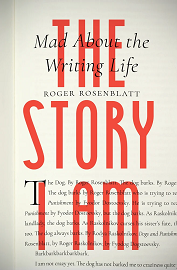
While Greenstein is excited about all the books her press is publishing this year, she told BTW about two in particular, including The Story I Am: Mad About the Writing Life by Roger Rosenblatt, which was released in April. “It’s all about writing, what it’s like to live the writer’s life, and [Rosenblatt’s] passion for being a writer,” Greenstein said, noting that the book is a collection of unpublished and previously published essays, as well as excerpts from novels and plays.
This June, Turtle Point will also publish Island of the Innocent: A Consideration of the Book of Job by Diane Glancy, which is a poetic and dramatic narrative exploring the mystery surrounding the Book of Job and the suffering of Native Americans in parallel with the suffering of Job. “Diane is someone I’ve worked with over the years,” said Greenstein. “At Harcourt I acquired her book Pushing the Bear: A Novel of the Trail of Tears, which Publishers Weekly named one of ten essential Native American novels.”
“Both of these authors are nearly 80 years old,” Greenstein added. “They’re accomplished, have published tons of books, and they’re exceptional writers. These titles are indicative of the kinds of books and writers I want to publish, which are those that stand the test of time.”
Books at Turtle Point are carefully selected, she added, noting that new authors are taken on because the press “believes they belong in the [literary] canon.” The press primarily finds new writers through word of mouth. “We also have a pretty sizable stable of authors, so we’re always seeing their next manuscripts,” she said.
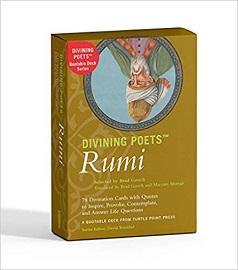
Introduced during the holiday season, Turtle Point launched the Divining Poets Quotable Deck Series; the decks are 78 cards with quotes and artwork that come in a cigar-like box that includes a display stand. First in the series, Greenstein noted, were Emily Dickinson, edited by David Trinidad, and Rumi, edited by Brad Gooch. William Blake, Walt Whitman, and William Butler Yeats decks are on the horizon.
Some of Turtle Point’s leading authors include Edward J. Delaney, who wrote Broken Irish, the press’ top selling fiction title. Delaney is “super literary, but also crosses over to a more popular sensibility,” Greenstein said, adding that Broken Irish was optioned for film. Delaney also recently published The Big Impossible, a collection of novellas and stories, with the press.
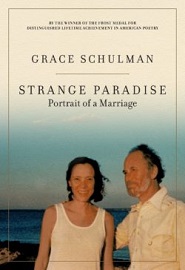
Grace Schulman and Richard Howard are some of Turtle Point’s other leading writers. The press recently published Schulman’s memoir, Strange Paradise: A Portrait of a Marriage, which explored Schulman’s grief over the loss of her husband.
This spring, Turtle Point will also launch a new series called Joan Books — named after the press’ popular 1996 publication Joan of Arc: In Her Own Words — which will highlight the experiences, insights, and wisdom of adventurous women through novels, memoir, and poetry. It will include titles by Diane Glancy, Katharine Coles, and, of course, Joan of Arc herself.
Greenstein also told BTW that she “adores indie bookstores,” noting that she regularly visits her local bookstores — Greenlight, WORD, McNally Jackson, and Strand — with a large bag full of galleys for buyers to peruse, in addition to attending industry events such as Winter Institute.
by Sonya Chung at BLOOM | See article here.
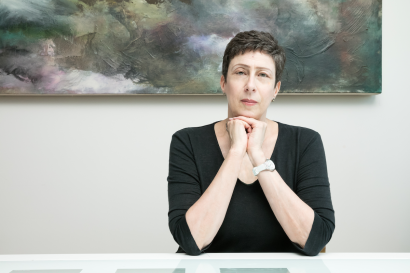
Sonya Chung: Turtle Point Press celebrates 30 years of independent publishing this year. The website describes founder Jonathan Rabinowitz’s commitment to publishing “forgotten literary fiction, as well as unique and eminently readable contemporary literary writers.” Tell us more about what distinguishes Turtle Point’s publishing mission and tastes.
Ruth Greenstein: Turtle Point Press has always been committed to combining superior literature with elegant and original book design. Our primary focus is to introduce readers to outstanding new work by contemporary writers from around the globe. When you consider the caliber of our authors and the nature of our publishing program, I think you’ll see that we’re a small press that reads large. In terms of literary tastes, Turtle Point Press has leaned toward a sophisticated and iconoclastic mix of authors, be they eccentric aesthetes like Britain’s Lord Berners; avant-garde stylists like Julien Gracq (who refused the Prix Goncourt); or bold and inspiring contemporary voices like Roger Rosenblatt, Diane Glancy, Michael Carroll, Katharine Coles, and Grace Schulman.
SC: Since you took over the reins as publisher in 2016, how has the press’s focus been maintained, and how has it changed?
RG: Our mission to publish exceptional literary work, beautifully designed and produced and meant to stand the test of time, has not changed. We are still dedicated to bringing bold and original literature to light. But we are also moving into new territory: we are launching a series celebrating women’s stories, called Joan Books, named after our perennially well-loved title Joan of Arc: In Her Own Words. We have also recently begun a series of tarot-style quotation decks, called Divining Poets™: A Quotable Deck from Turtle Point Press, which are boxed sets of 78 cards featuring inspiring lines by visionary poets. So far, we’ve published a Rumi deck and an Emily Dickinson deck. Our longtime house author, poet David Trinidad, is the series editor. We are also planning a revival of some of our popular and beloved backlist titles—books by James Schuyler, Julien Gracq, Hannah Green, and more—which are as representative of Turtle Point Press’s mission now as ever.
SC: Publishing independently for three decades is no small feat, especially over these particular decades. You’ve seen mammoth changes in the way books are acquired, edited, produced, marketed, and consumed. What have been some of the greatest challenges for Turtle Point? What are some examples of triumphs despite forces of technology and corporate economics?
RG: Fine independent publishing at the highest standards does not come quick or cheap. The enterprise must strike some as anachronistic in these digitally dominant times. It is not easy to find young people who have the patience and predilection for such meticulous work. There was a time when many publishers worried that ebooks would rival print books for sales. Yet we have seen that, on the contrary, readers continue to want physical books—and, in particular, well produced and designed books. Each book that we publish is a triumph over adversity. When a new book comes in and we see that the enormous labors of one of our writers, coupled with our own work and that of our printer, publicist, and distributor, have resulted in a worthy object, a carrier of knowledge, one that we can have and hold and share, we feel triumphant and more than gratified.
SC: Turtle Point’s catalog reads to me like a stack of books in a friend’s home library—a smart friend whom I don’t see often enough, who has deep literary interests and an eye for gems that are intellectually, aesthetically, and emotionally satisfying. Another way of putting it is that these are quiet, alluring books I wish I’d known about before! Tell us about how you think about / work toward reaching “the right readership” for your titles.
RG: Well, thank you! I think you would also find some books that are fairly outspoken and challenging.

Turtle Point Press Divining Poets
To start, I rely on a group of serious and trusted readers, first among them being Turtle Point’s founder, Jonathan Rabinowitz, whose tastes have oriented the press more than anyone’s. When I get a submission, I can usually tell pretty quickly if it’s something that may be of interest—and even more so, if it’s of high interest. The right works tend to pop out of the mix, based on the press’s focus, personal taste, the author’s background, subject areas, and so on. And if the work grabs my attention and the attention of our trusted readers, we can be confident that it will grab other readers’ attention, too. It’s a human-to-human interaction that takes place via the page. From there, word of mouth in its many forms takes over, from social media to traditional reviews to podcasts, blogs, ads, festivals and conferences, author readings. Most of our books have niche markets, and we gear our publicity and marketing efforts toward those markets.
SC: There is a wonderful affinity for hybridity and “crossing over” among TP titles—text & photography together in Herman Portocarero’s Havana without Makeup, prose collections by writers who primarily write poetry (Grace Schulman, Devin Johnston, Katharine Coles), female heroines depicted by male authors (Michael Mazza, Max Ewing, Bruce Kellner), a painter writing a novella (Susan Barnes); on and on. Tell us about this sensibility/ aesthetic interest.
RG: Good eye, Sonya! I’m so glad you noticed that. In fact, this “iconoclasm” (as our mutual friend Jeffrey Waxman puts it) is at the heart of who I am, who founder Jonathan Rabinowitz is, what we love and have often sought to acquire. I’m not sure what exactly I can tell you about this. I am drawn to interdisciplinary work: to performance art (which I wrote a thesis about as an undergraduate), to genres that defy easy definition, to intermingling, and to rule breaking.
SC: Turtle Point titles are beautifully designed. How do you approach design—specifically how do you balance the creative and the pragmatic?
RG: Readability is as essential to me as excellent design. And authors often have very specific ideas about how they want their books to look—both inside and out. The only way I can achieve results that satisfy our design goals, make our authors happy, and allow the book designer the creative freedom to produce outstanding work is through a collaborative partnership. We are fortunate to have Alban Fischer as our house designer. Alban, a poet, publisher, and editor himself, works with a handful of fine independent presses, and he is now handling our lists. At the start of a project, we have an easy, lively dialogue about how to develop covers and interiors, Alban looks at the manuscript and any ideas that the author and that we may have, and then works his magic. It’s a lot of fun, really.
SC: I was struck by the press announcement of your transition from editor to publisher in 2016—the word “acquired.” With a small press, it’s not so much a “promotion” as it is a decision, a commitment, and a vision. The idea of a woman “acquiring” a publishing house is exciting—not something we hear about every day. The announcement also declared, “Future projects will introduce more women writers and west-coast writers…” Tell us about what your becoming publisher entailed, how you decided to do it, and what it’s meant for Turtle Point to have a woman at the helm.
And are you still hands-on editing as much as you have in the past?
RG: Moving from an editorially focused role, both in-house and as a consultant who helped writers develop work and place it, to running a complex small business with an inventory and staff, has been a massive learning curve! When Jonathan “popped the question” back in December 2015 with the words, “Why don’t you ‘take’ the press?” I thought, “Sure! Sounds like a dream come true!” But I had no idea of what I was getting into. (So watch out for impulse buys, ladies!) I have given up quite a lot of freedom—most notably, the freedom to leave New York for any length of time—in order to run the press. And I have no regrets. The shift to publishing more women and now, to launching a women’s series, is the primary change since the press changed hands from Jonathan’s to mind.
I do love editing, it’s surely one of my main strengths in the business, and I wish I had more time to do the deep editorial work that I used to. But as a publisher, I’m busy with a thousand details of keeping the press running smoothly, so I can’t do as much of this as I used to.
SC: You and I were first introduced to each other by another champion of independent presses—the aforementioned indie-books guru Jeff Waxman—who also knew we were both interested in older writers and perplexed/frustrated by the literary world’s emphasis on “Under 30s” and “Under 40s.” What have you observed about this in your work and your own reading life?
RG: There’s an unparalleled thrill to discovering and working with younger writers who are gifted, perhaps wildly gifted, and are clearly on a path to success. Working with a young writer on a debut can be a kind of honeymoon. But when the work is exceptional and the author has “all the right stuff,” age is not the most important factor. What counts is passion, energy, originality. I find that older writers tend to have more to say—more wisdom, more that’s worth hearing and remembering. They are sure-footed, at their peak. They can also be a pain in the ass! It’s certainly a trade-off.
SC: What wisdom or advice do you have for book lovers and entrepreneurs working in niches and on a small scale?
RG: There’s a backlash against the behemoths. Take advantage of it. Find your audience and cultivate your audience. Start local and grow. Small is beautiful.

Sonya Chung is the author of the novels The Loved Ones and Long for This World. She is a staff writer for The Millions and founding editor of Bloom.
Photos of Ruth Greenstein and Jonathan Rabinowitz by Beowulf Sheehan.

JULY 19, 2019
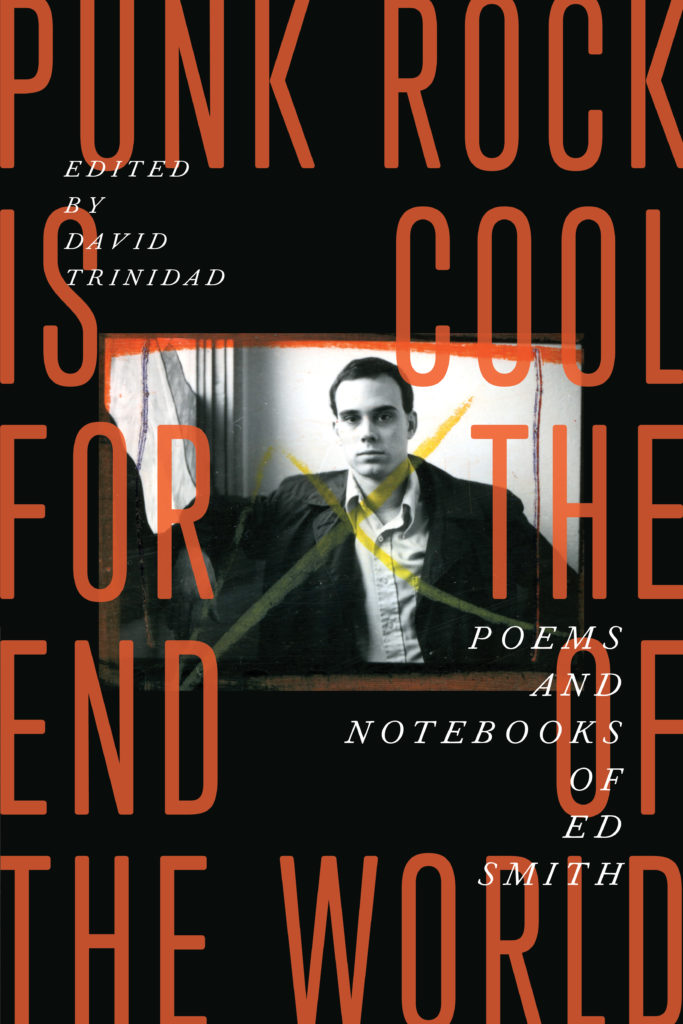
David Trinidad’s Punk Rock Is Cool for the End of the World: Poems and Notebooks of Ed Smith reviewed by David L. Ulin in the Los Angeles Times.
“What makes this work is the implication that, even as he speaks for himself, Smith is speaking for all of us. I did not know him, although I know many of his peers and contemporaries, including Trinidad, but the existence he describes is one I recognize. “
Read more here.
September 27, 2018
Veteran Producer David Streit Has Optioned BROKEN IRISH For TV Series
Veteran producer David Streit has optioned Edward J. Delaney’s novel BROKEN IRISH (Turtle Point, 2011) for a limited television series.
BROKEN IRISH delivers a captivating portrait of 1990s South Boston at the crossroads of the millennium—a place where little distinguishes mob bosses from pillars of industry, the bullied from the bullies, and the pious from the pitiful. In this tough Boston neighborhood, six lives are about to converge on a time when “Whitey Bulger has evaporated into the ether but his boys still kick around on the street corners…waiting for Whitey’s Second Coming.”
In discussing his plans for the series, Streit said, “Delaney’s hauntingly beautiful characters are challenged to make sense of a world in transition—a proud tribe struggling to preserve its relevance and existence in the face of gentrification and corporate greed. BROKEN IRISH is a complicated, enthralling and satisfying novel ready for transition to the visual narrative of television.”
The novel garnered starred reviews in each of the publishing trade magazines, landed on several “best of the year” lists and went on receive the Editors’ Choice Award from Booklist and the New England Book Festival Grand Prize. Delaney’s latest novel, Follow the Sun, was published in June.
CONTACT: David Streit, streitdavid@me.com, 323-363-9023, www.davidstreitproducer.com
“Ruth Greenstein, longtime editor and associate at Turtle Point Press, has acquired the independent publisher, which was founded in 1990 by Jonathan D. Rabinowitz and focuses on new fiction, poetry, memoirs, works in translation and rediscovered classics. The list will continue to be distributed by Consortium in North America and by Turnaround Publisher Services in the U.K. Rabinowitz remains as editor-at-large.
‘Turtle Point Press has been seminal to my life in independent publishing. I couldn’t be happier than to be in the position to carry on this tradition of exceptional publishing. Jonathan’s joie de livres brightens my days and guides my work,’ said Greenstein, who is also the director of Greenline Publishing Consultants. A founding member of the independent editors alliance Words into Print, she has worked in the book publishing industry since 1989, including stints as a staff editor at Harcourt, Ecco and the publishing division of GoodTimes Entertainment.
Rabinowitz commented: ‘Ruth Greenstein and I met nearly twenty years ago when, as an editor at Harcourt, she acquired the paperback rights to one of my first titles, Making It New by Henry Geldzahler. I feel so fortunate to have Ruth succeed me as publisher of Turtle Point Press. She is not only devoted to independent publishing but she is also one of the finest literary editors in the business.'”
FOR IMMEDIATE RELEASE
June 28, 2016
Contact: Jeany Wolf
917.655.2555
jeanywolf@gmail.com
New Publisher at Helm of Turtle Point Press
Ruth Greenstein Takes the Reins from Jonathan D. Rabinowitz
Brooklyn, NY: Turtle Point Press is pleased to announce that its longtime editor and associate, Ruth Greenstein, has acquired the award-winning independent publisher. Founder Jonathan D. Rabinowitz remains as editor-at-large. The list will continue to be distributed to the trade by Consortium Books Sales & Distribution in North America and by Turnaround Publisher Services in the United Kingdom.
Founded in 1990, Turtle Point Press publishes new fiction, poetry, memoirs, works in translation, and rediscovered classics, and is distinguished by books of elegant design and superior literary content.
Jonathan D. Rabinowitz established Turtle Point Press with a commitment to publishing forgotten literary gems, as well as uniquely delightful contemporary literary writers. Together with its imprints Books & Co., run by former bookseller Jeannette Watson, and the eponymous Helen Marx Books, the small press established a sizable reputation through its stable of notable authors and its consistently well-received titles.
“Turtle Point Press has been seminal to my life in independent publishing,” says Greenstein. “I couldn’t be happier than to be in the position to carry on this tradition of exceptional publishing. Jonathan’s joie de livres brightens my days and guides my work.”
From Rabinowitz: “Ruth Greenstein and I met nearly twenty years ago when, as an editor at Harcourt, she acquired the paperback rights to one of my first titles, Making It New by Henry Geldzahler. I feel so fortunate to have Ruth succeed me as publisher of Turtle Point Press. She is not only devoted to independent publishing but she is also one of the finest literary editors in the business.”
Future projects will introduce more women writers and west-coast writers, as well as broadening the international line to include work that spans the globe. The Spring 2017 list will include: More Than Everything, a post-war memoir set in Kokoschka’s Salzburg and Kahlo’s Mexico by style icon Beatrix Ost, illustrated with photos and the author’s own artwork, Havana without Makeup, an unconventional look at the soul of the city by an insider with decades of unparalleled knowledge, EU Ambassador to Cuba Herman Portocarero, That Crazy Perfect Someday, a near-future tale of calamity and rediscovery featuring a female surfing pro pursuing an Olympic dream, by ace creative director Michael Mazza, Taliban Beach Party, by California poet Eric Howard, moves from parody to prophecy to address 9/11 and its aftermath in the context of Los Angeles history, and Nomadologies, a debut poetry collection that reveals how mobility sustains contradictory existences, by Duke Turkish Studies professor Erdağ Göknar, the award-winning translator of Orhan Pamuk. The following season will showcase new work by poets David Trinidad and Dieter Gräf, novelist Ligia Ravé, and performer Joseph Keckler.
Among the press’s long list of beloved authors are Richard Howard, Julien Gracq, and Lord Berners. In recent recognition from author Daniel Handler for Turtle Point’s book Dresden, Handler tweets, “I salute thee, Lord Berners.” For a complete catalog listing, visit the website.
About Ruth Greenstein
Ruth Greenstein, publisher of Turtle Point Press and Director of Greenline Publishing Consultants, has worked in the book publishing industry since 1989. She is a founding member of the independent editors alliance Words into Print, and has been a staff editor at Harcourt, Ecco, and the publishing division of GoodTimes Entertainment.
# # #